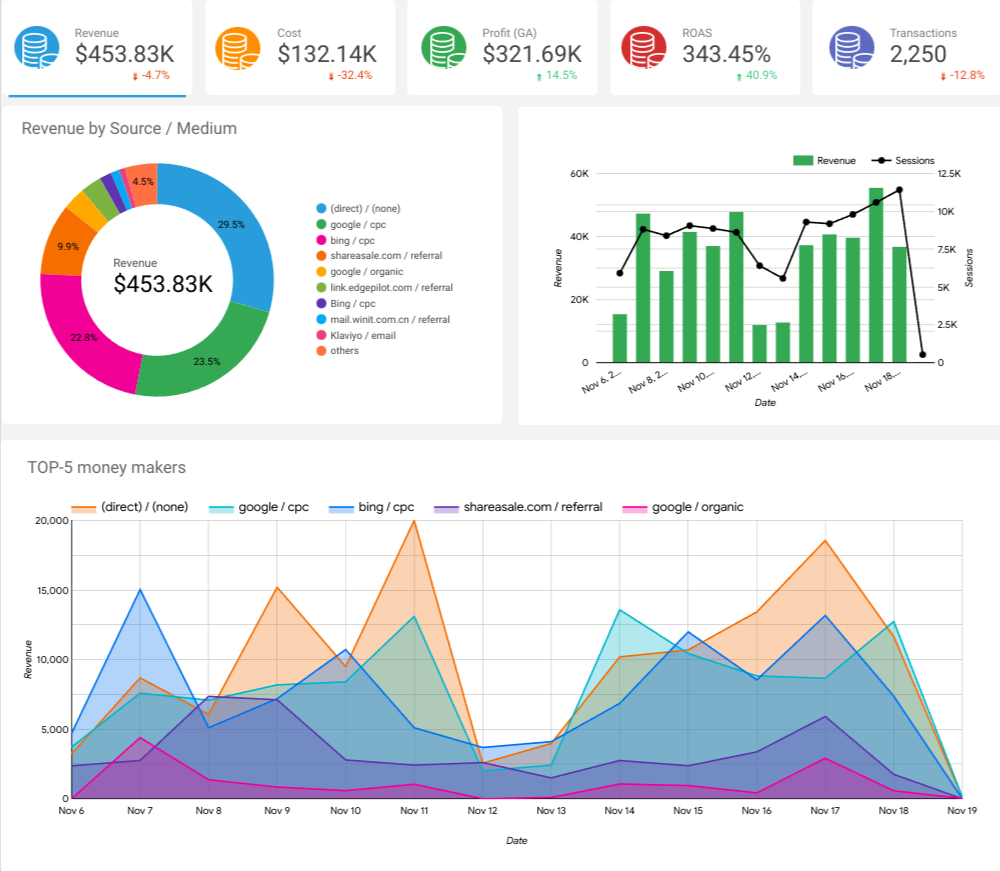Marketing Dashboard
Marketing dashboards have emerged as indispensable tools that provide a comprehensive and visual representation of key performance indicators (KPIs) specific to marketing efforts. In this comprehensive guide, we will explore the benefits, components, design considerations, and best practices for creating effective marketing dashboard.

Here are some key problems the dashboard help to solve:
- Data Overload: Marketing generates vast amounts of data from various sources such as social media, website analytics, email campaigns, advertising platforms, and customer relationship management (CRM) systems. Marketing dashboards consolidate and visualize this data, providing a clear overview and enabling marketers to make informed decisions without being overwhelmed by raw data.
- Lack of Visibility: Without a centralized dashboard, marketers often struggle to gain a comprehensive view of their marketing efforts. They might have to manually collect data from different sources and spend valuable time compiling reports. Marketing dashboards offer a single, unified view of key metrics, allowing marketers to monitor performance across channels and campaigns in real-time.
- Inefficient Reporting: Traditional reporting methods often involve manually creating spreadsheets or presentations, which can be time-consuming and prone to errors. Marketing dashboards automate reporting processes, enabling marketers to generate up-to-date, visually appealing reports with just a few clicks. This saves time, improves accuracy, and allows for easier sharing of information with stakeholders.
- Lack of Data Insights: Marketing dashboards provide data visualization and analytics capabilities, allowing marketers to gain valuable insights into their marketing efforts. They can identify trends, patterns, and correlations in the data, helping them optimize campaigns, allocate resources effectively, and make data-driven decisions. This empowers marketers to continuously improve their strategies and achieve better results.
- Real-Time Monitoring: Traditional reporting methods often provide historical data, making it difficult to monitor campaigns in real-time. Marketing dashboards offer real-time data updates, allowing marketers to track performance metrics as they happen. This enables timely identification of issues, immediate action, and agile decision-making to optimize marketing activities on the fly.
- Goal Tracking and Measurement: Marketing dashboards help marketers track and measure progress towards their goals. By setting up key performance indicators (KPIs) and visualizing them on dashboards, marketers can assess the effectiveness of their campaigns and activities. They can compare actual performance against targets, identify gaps, and take corrective actions to stay on track.
Marketing dashboards are powerful tools that help solve many problems faced by marketing professionals.
Overall, marketing dashboards empower marketers by providing a centralized, real-time, and visual representation of their marketing data. They enable efficient data analysis, decision-making, and performance tracking, leading to more effective marketing strategies and improved ROI.
